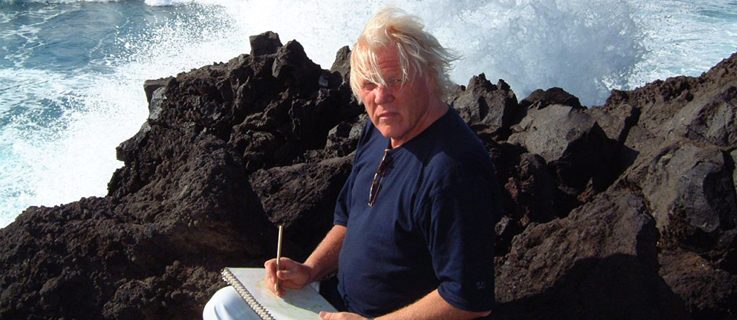Margarete Kreuzer’s “Revolution of Sound. Tangerine Dream” documents a German music legend. “Tangerine Dream is science fiction”: Edgar Froese said that himself; nobody could describe the futuristic sound of his music better than the uncontested head of what was for a while the most successful German band on the planet.
The endless sequences with no recognisable melody, reverberating percussion in symphonic, dreamlike clouds of sound – what the Berlin prog formation set down, especially on their first albums Electronic Meditation (1970) and Alpha Centauri (1971), really was “cosmic music”. If science fiction is regarded as a specific type of poetry divorced from any content, then the documentary Revolution of Sound. Tangerine Dream is even more like science fiction than many films included in this year’s (excellent) Berlinale retrospective Future Imperfect. Science – Fiction – Film.
A clever device used by director Margarete Kreuzer was to leave Froese, who died in 2015, out of the picture. In spite of the interview material that is available, she only uses quotations from his unpublished autobiography, spoken by Alexander Hacke, bass guitarist of Einstürzende Neubauten. Against the backdrop of original footage, such as that of Tangerine Dream’s epoch-making sacral performance in Reims Cathedral in 1974, Froese’s words seem to come to us from out of the cosmos. Added to this are contributions from friends and musicians such as “our French spiritual cousin” (Froese) Jean-Michel Jarre.
The film is worthy of special attention. Tangerine Dream was reformed many times and provided the soundtracks for Hollywood movies by directors such as William Friedkin (Sorcerer, 1977), Michael Mann (Thief, 1981) and Kathryn Bigelow (Near Dark, 1987). Thanks to the band’s sublime sounds, even a frivolous teenager comedy such as Paul Brickman’s Risky Business (1983, featuring the young Tom Cruise) becomes a metaphysical experience. Hardly any real science fiction was included, but the film shows a surreal performance by Froese in the German made-for-TV comedy Warum die UFOs unseren Salat klauen (1980), released on video as Hallo, Checkpoint Charlie and later as Checkpoint-Charly. The controversial theorist also had a sense of humour.
